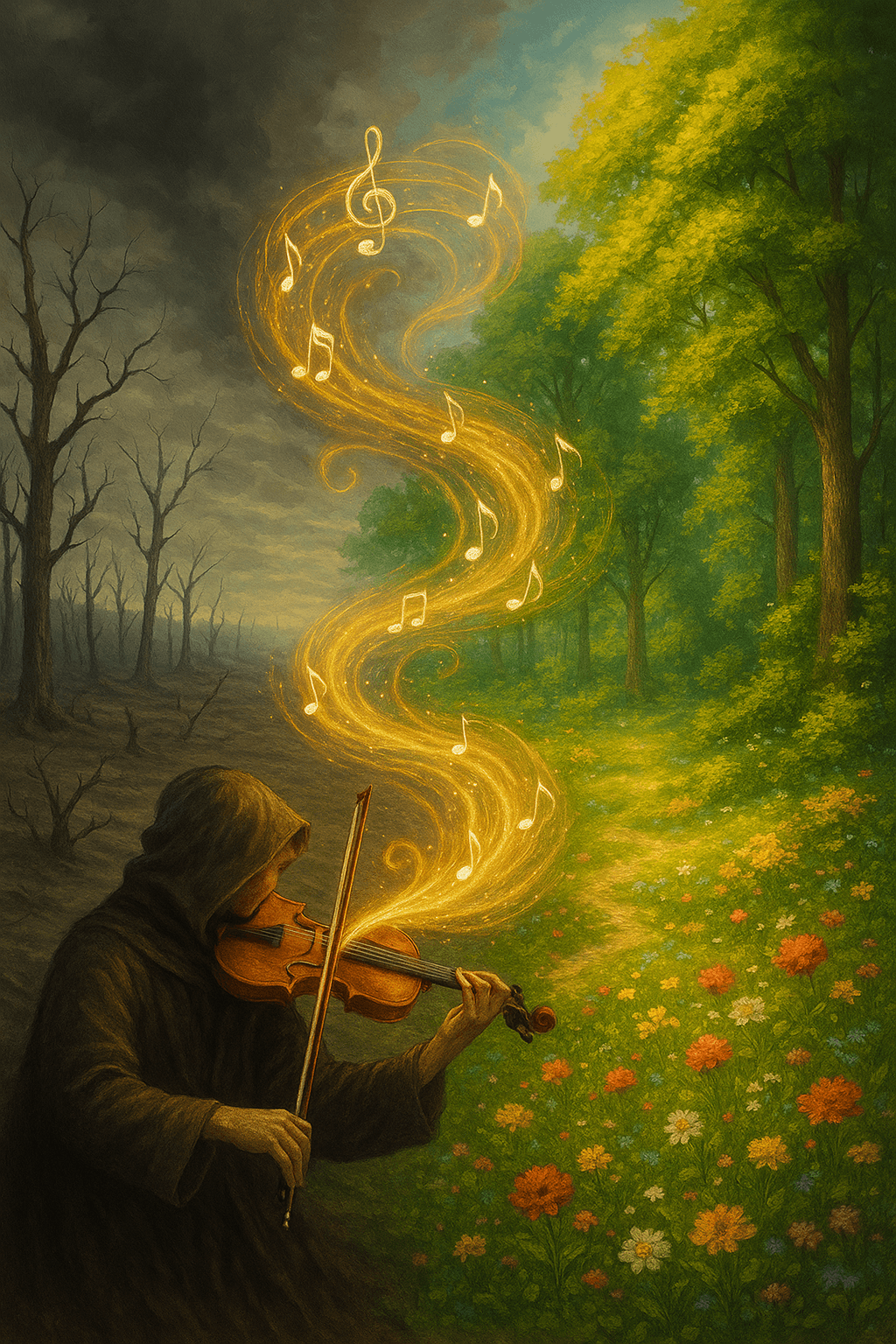The Healing Power of Music in Life’s Wounds

Life is a wound that only music can heal. — Federico García Lorca
—What lingers after this line?
One-minute reflection
What's one small action this suggests?
Understanding Lorca’s Metaphor of Life as a Wound
Federico García Lorca’s evocative statement frames human existence as inherently painful, a wound each of us bears from birth. This metaphor calls attention to the universal experience of suffering—be it through loss, longing, or struggle. By comparing life to a wound, Lorca captures both its vulnerability and the constant ache many feel navigating the complexities of existence.
Music as a Universal Salve
From this perspective of pain, Lorca elevates music as a singular remedy. Unlike remedies that target only physical or external ailments, music touches the emotional and spiritual core. Anthropological studies have found that every culture creates music, often using it in rituals of mourning and healing—underscoring its near-universal therapeutic role.
Historical Perspectives on Music’s Transformative Power
Transitioning to historical precedents, the ancient Greeks believed in the doctrine of ethos, positing that music could shape character and soothe inner turmoil. In Plato’s 'Republic', musical education was essential for the soul’s balance. Centuries later, Beethoven described composing as his way of rising above oncoming deafness and depression, reinforcing Lorca’s insight from a deeply personal vantage point.
Scientific Insights into Music and Emotional Healing
Modern research lends further support: neuroscientists have shown that music releases dopamine, reducing pain and lifting mood. For example, studies by Levitin (2006) demonstrate how listening to moving melodies alleviates anxiety and depression. Music therapy is now recognized in hospitals for helping patients manage chronic pain and trauma, transforming Lorca’s poetic intuition into tangible medical practice.
Personal and Collective Restoration Through Song
Bringing these threads together, the healing power of music is felt not only individually but collectively. Songs have united people during times of adversity—from spirituals sung by enslaved communities to modern anthems of protest and solidarity. Thus, music does more than mend private wounds; it stitches together fractured societies, echoing Lorca’s vision of music as life’s great healer.